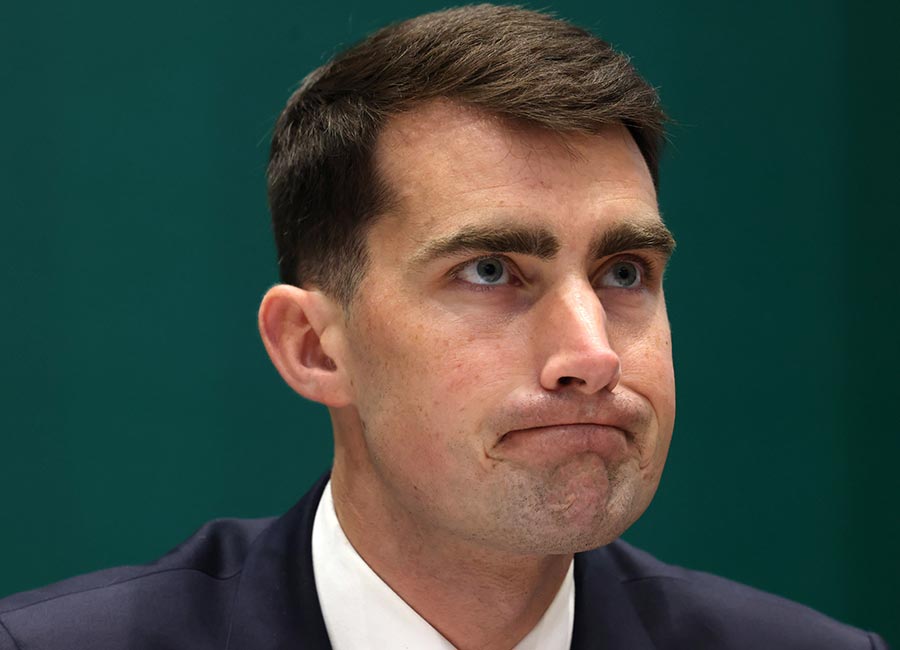The head of Ireland’s fiscal watchdog has sounded the alarm over the “inappropriate” rise in State expenditure after the Government forked out almost double its limit last year, writes Sarah McGuinness.
New figures show that “voted” public spending rose by 9.5% to €103bn in 2024 – well in breach of the State’s 5% spending rule.
“Non-voted expenditure”, which must be paid by law and lies outside of the annual budget process, accounted for €12.8bn.
This was broadly in line with 2023 and brings total State spending to €116.5bn for the 2024 fiscal year.
Public Expenditure Minister Paschal Donohoe said the increased level of public expenditure “reflects the Government’s commitment to supporting households and businesses while maintaining fiscal responsibility and safeguarding Ireland’s economic future”.
But Seamus Coffey, the chair of the Irish Fiscal Advisory Council (IFAC), questioned the progress that has been achieved through record spending.
He said: “[This level of extra spending] is only adding stimulus to an economy that doesn’t need it.
“And if the Government is spending all this additional money, one concern must be: what additional goods and services are they getting?”
He added: “If you’re pumping more demand into an economy that is performing pretty well, one consequence could be that you drive up domestic prices in areas like hospitality, health and housing – things that we have to provide ourselves.”
In 2021, the outgoing coalition committed to limiting the annual growth in State spending to 5% per year.
It has failed every year since then to keep that pledge – causing IFAC to warn that Government expenditure risks “overheating” the economy.
Mr Coffey, who in December said the State has “lost its anchor” on public spending, has now described the 9.5% rise in expenditure as “inappropriate” given the economy didn’t suffer from any unprecedented shocks last year.
He added: “In recent years, shocks like Covid, Brexit, and the spike in inflation meant that the Government had to spend more money to support the public.
“But a shock of that scale didn’t happen in 2024. The threat of Covid has eased.
“Inflation looks like it will average at 2% for the year.
“So expenditure growth of 9.5% is significantly above [what we might have previously expected] – and it’s significantly greater than 5%.”
Both Fianna Fáil and Fine Gael pledged an ambitious array of policies which, if delivered once they return to power, will cost substantial sums of money.
While Mr Coffey has warned that continued increases in public expenditure “is not the guaranteed best approach”, Finance Minister Jack Chambers said recently that the two main parties had been re-elected to power with a mandate to maintain current spending patterns.
Mr Chambers told the Business Post that “the public wants to see investment in essential areas”, including housing, health and infrastructure.
“The parties that have received a mandate to govern again now must put in place the plans to deliver on these areas,” the minister said, adding that the €14bn Apple tax fund will help fund large-scale infrastructure projects.
The increase in State spending came as Ireland strengthened its fiscal position in 2024.
New data showed the Exchequer recorded a surplus of €12.8bn – the majority of which came from the transfer of funds from the Apple escrow fund in the last quarter of the year.

Once the Apple tax funding was removed, the country posted an underlying surplus of €1.8bn and record tax revenues of €97bn.
Income tax receipts of €35.1bn last year were €2.2bn (6.6%) ahead of 2023, reflecting strong employment and earnings growth.
Mr Chambers said that even without the Apple tax funding, Ireland saw “solid growth in income tax and VAT receipts last year”.











